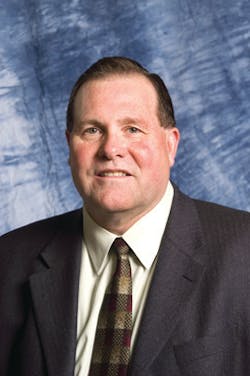In my January 2013 column, I wrote about three wishes I had for 2013. I actually submitted that column to Firehouse on Nov. 26…and then December happened. A couple of incredible events that occurred in December 2012 made me wish that I had devoted more of my January 2013 column to one of the three issues I had covered.
The December events I’m referring to had an impact on the entire country and displayed (better than I could have ever done in a column) the contrast between the political rhetoric that occurs and the reality of the public’s feelings and observations.
The political rhetoric
In the January 2013 column, I wrote about the political attacks that some elected officials in certain states had launched against public employees in the past few years. There was a strong consensus as the economic downturn unfolded that in order to balance budgets and sustain the viability of pension systems (especially at the state and local levels of government), public employees needed to make concessions and accept both temporary and more long-term changes to their compensation packages.
Along these lines, some jurisdictions accomplished incredibly difficult goals working in good faith with the employees and their union leadership. They did so in a respectful way and did not let the challenges they were facing result in personal attacks against the integrity of the employees or management. Labor and management realized that neither of them had caused the problems and therefore kept their eyes focused on the challenges and solutions at hand. They also avoided the temptation to inject unrelated political agendas into the problem-solving process. However, this has not been the approach taken in all cases.
As more states struggled with the same kinds of economic challenges as others, some elected officials decided to take a different approach by drawing lines in the sand and essentially branding firefighters, police officers, teachers and other public employees (and their unions) as the enemy. In doing so, they made accusations that were based on twisted facts, lies and biased assertions, and then proceeded to make some very divisive public policy decisions as a result. The old political agendas that found their way into these dysfunctional political discussions revolved around:
• Anti-public employee sentiment in general
• Anti-union platforms
• Opposition to market-level public employee wages and benefits, including pensions
• Anti-collective bargaining
• Anti-public employee political influence
It is concerning that elected officials in some states have spent so much time, money and energy blaming public employees for our nation’s “great recession.” In doing so, some ugly and mean-spirited comments have been made by people who are supposed to be leading our government. They have even asserted that public employees are essentially lazy, greedy, overpaid, under-worked, self-centered, generally incompetent and possess too much political influence.
It is intriguing that these false and demeaning assertions about public employees have been made while our elected officials at all levels of government, throughout the country, have essentially given a pass to the people who we all know are the ones responsible for creating the “great recession” and the many side effects is has dumped on our economy. There has not been one single concerted effort from a civil or criminal standpoint to hold the actual culprits accountable. It seems that there is a lack of desire, courage and political will by our elected leaders to do so. Therefore, instead of investigating and dealing with the:
• Banking industry
• Wall Street and corporate heads
• Mortgage industry
• Government officials and agencies who were responsible for regulation and oversight – some of our elected officials have chosen to blame public employees instead and have even taken action against them through legislation and other means.
Then came December
What a tragic month our nation endured as we closed out 2012. A crazed man with a semi-automatic rifle and other guns entered Sandy Hook Elementary School in Newtown, CT, and murdered 26 people. Twenty of them were small, young, innocent children. The other six were teachers and administrators at the school. Three others were wounded inside the school and the shooter also murdered his mother at a separate location.
Later in the same month, another crazed man with a similar semi-automatic rifle and other guns positioned himself across from a house he had set on fire and proceeded to shoot the first four firefighters who arrived on the scene to battle the blaze. Two firefighters were killed and two others were critically wounded. These were West Webster, NY, volunteer firefighters, and at least two of them were also full-time public employees.
Our nation has endured many tragic events over the years, and these two December tragedies should not in any way overshadow the others, past or future. But these two incidents, happening in such close timeframes to each other, clearly bring out the best in public employees who have been on the receiving end of some disrespectful and mean-spirited comments and actions by some elected officials.
The Public Reality
Following the two December events, the words and actions of the public showed a distinct contrast to the way some elected officials described public employees. In addition to honoring the children, memorials were established on behalf of the teachers and administrators in Connecticut, as well as the firefighters in New York. All of the funeral services were well attended and the communities could not have been more supportive in their displays of love, appreciation, and respect. It was obvious to everyone that had it not been for the actions of brave people at both of the scenes (Connecticut and New York), more people would surely have been injured and killed.
A couple of takeaways
It should be clear to any observer that the public does not necessarily buy into the contentious relationships some elected officials have established with teachers, firefighters, police officers and other public employees over the past few years. In Newtown, the teachers and administrators at Sandy Hook Elementary School displayed incredible desire, courage and will to protect their children and colleagues. Perhaps elected officials at all levels of government should take a lesson from them in an effort to civilly and/or criminally deal with those who are actually responsible for causing our “great recession.”
Desire, courage and will are wonderful personal attributes. The people served by the West Webster Volunteer Fire Department would say that those attributes are present in their public employees and their volunteers, who often are the same people.
I have been asked by several of my friends whether we should not just let this issue go, and my response is emphatically “no.” These contentious debates and attacks continue to move from state to state and are not over. In politics, an issue is not over until both sides decide it is over. One side does not get to decide for the other to end a political dispute.
Frankly, the elected officials who have been making (and continue to make) negative and untrue assertions about public employees and the true causes of the “great recession” need to be publicly challenged. Public employees should not be unfairly punished or singled out by elected officials who are acting out long-held political biases.
December 2012 was a difficult month, but it should also serve as a reminder to all of us to be respectful and appreciative of our career and volunteer firefighters, teachers, police officers and other public employees. They have earned it.
DENNIS COMPTON, a Firehouse® contributing editor, is a speaker and the author of Progressive Leadership Principles, Concepts and Tools, the When in Doubt, Lead! books, the book Mental Aspects of Performance for Firefighters and Fire Officers, and many articles, chapters and other publications. He was the fire chief in Mesa, AZ, for five years and assistant fire chief in Phoenix, where he served for 27 years. Compton is past chairman of the Executive Board of the International Fire Service Training Association (IFSTA) and past chairman of the Congressional Fire Services Institute’s National Advisory Committee. He is currently chairman of the National Fallen Firefighters Foundation Board of Directors.

Dennis Compton | Chief
DENNIS COMPTON is a well-known speaker and the author of several books, including his most recent offering titled Progressive Leadership Principles, Concepts and Tools. He also authored the three-part series of books titled When in Doubt, Lead, the book Mental Aspects of Performance for Firefighters and Fire Officers, as well as many articles, chapters and other publications. Compton was the fire chief in Mesa, AZ, for five years and an assistant fire chief in Phoenix, where he served for 27 years. He is past chairman of the Executive Board of the International Fire Service Training Association (IFSTA) and past chairman of the Congressional Fire Services Institute (CFSI) National Advisory Committee. Compton is currently the chairman of the National Fallen Firefighters Foundation (NFFF) Board of Directors and co-chairs the Fire Service-Based EMS Advocates Steering Committee.






